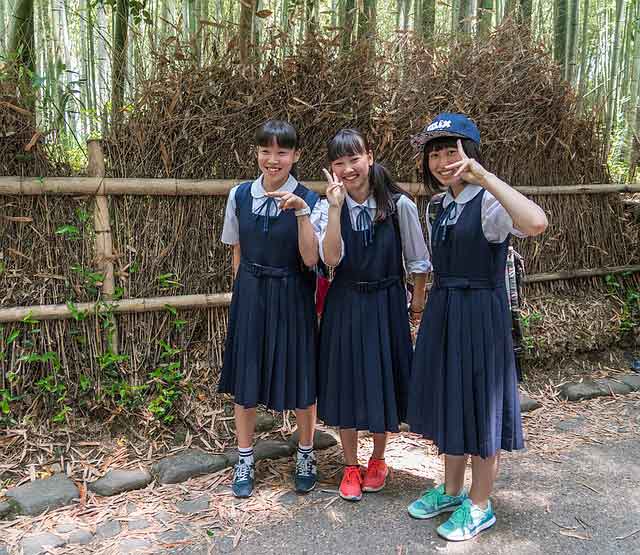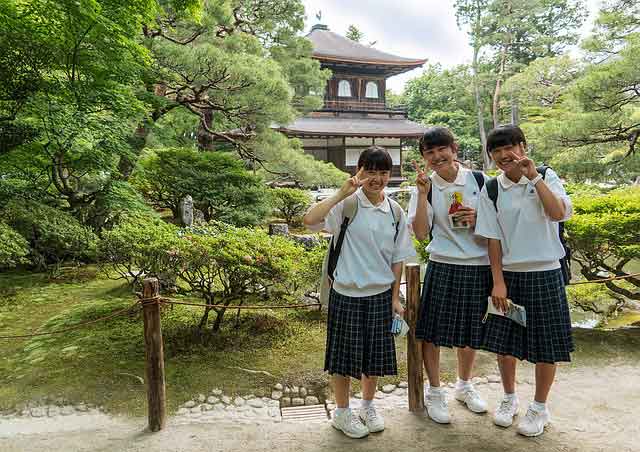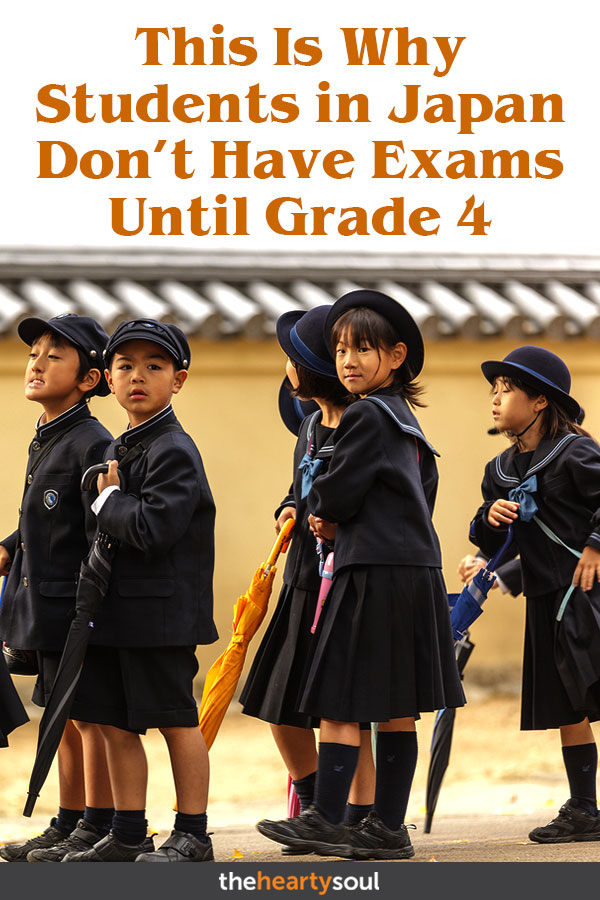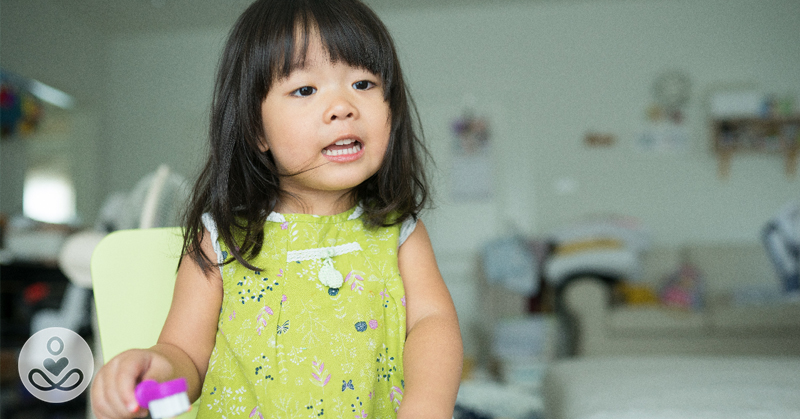Japanese culture has attracted Westerners for a long time. The food, the language, and the manners all seem to go a long way when it comes to becoming an appealing nation. Even their schools are run differently than ours. They don’t have exams until the fourth grade because a higher emphasis is put on developing responsibility in youth and ensuring children are capable of cleaning, caring, and being polite.
In certain respects, Japan’s educational system has become the envy of the world. Boasting high scores in math and other disciplines that typically North American students snub their noses at. Their system which has the school year start in April has students work on themselves first before delving into a life of exams that culminates in the pursuit of a university in a period of time known as examination hell.
Not to judge, but to guide
The goal for the first three years of a student’s educational career is not to judge the child’s knowledge or learning, but to build good manners and develop their character. So instead of being destroyed by exam after exam, they simply take small quizzes. All the while they are taught to respect other people and to be gentle with animals and nature.
They also learn other important life qualities such as being generous, compassionate, and empathetic. Students are taught self-control, and justice. This might seem a large task for a person so young but the Japanese believe in starting early. School for young children is founded on the idea that their character needs to evolve before they begin a career of constant examinations and stress-fuelled studying.
When school is out

As earlier mentioned, their school year begins in April, and the first day of school often coincides with the time of the cherry blossom, a beautiful time of year where students are ushered back to school from their ‘summer’ break. Their break is five weeks long, about half as long as North American students. The break is right in the middle of their school year, and the students are expected to show up to school for club activities, even elementary students are assigned a hefty summer homework packet.
And until recently, they were expected to show up to school on Saturdays, but a recent push for a more relaxed school system means more school boards are allowing students to take the day off. But even though school is out, more Japanese students spend their Saturday mornings doing math than elsewhere.
Honorable cleaning
One huge difference between North American and Japanese schools is that the students clean the schools themselves. There are no janitors, and the students spend time daily cleaning the halls, washrooms, and floors. Tasks are assigned like assignments and are rotated throughout the year. The Japanese education system believes that requiring students to clean up after themselves teaches them to work in a team and to help each other. It also helps them learn respect for their work and the work of others. You could imagine how students would be tidier if they knew they were the ones who had to clean it up. The practice of students cleaning the school is called Souji and is translated as honorable cleaning.
Clean plate club
Japanese students spend their lunches eating together in the classroom. The Japanese educational system tries its best to ensure that the students eat healthy and balanced meals. The menu is developed by qualified chefs and health care professionals. They also spend time during this period bonding with their teacher who also eats with them. The lunch is even served by students who are assigned the task of serving their peers. There is also a particular emphasis on zero waste since, in Japanese culture, this is frowned upon, so a ‘clean plate club’ membership is mandatory.
After school

Most students spend time in after school workshops, and they are very popular. As most students want to get into a good middle school, a lot of students attend a preparatory school or attend private after-school workshops. These are normally held in the evenings, but they also attend an eight-hour school day. They are also known for studying during the holidays and on weekends. So it’s no wonder Japanese students almost never repeat grades in primary, lower secondary, or secondary school.
Respecting culture
They also learn Shoda, or Japanese calligraphy, which involves dripping a bamboo brush in ink and using it to write hieroglyphs on rice paper. This is known as an art form and is very important to maintaining Japanese culture. Another art form that the students practice is Haiku. Both are taught with the aim of teaching children to respect their own culture and centuries-old traditions.
Uniforms
They also have a strict uniform policy, and it is intended to remove social barriers among students and get them into a working mood. The boys wear a military style suit, and the girls wear a sailor blouse and pleated skirt. There is often also a strict ban on makeup, nail polish, hairstyles and even eyebrow grooming that would make it hard to handle for a North American student.
Arriving ready to learn
Japanese students don’t miss as much school as Westerners. They also don’t arrive late as much and around ninety-one percent of pupils reported that they never or only in some classes, ignored what the teacher was saying. So not only to they arrive on time, they show up ready to learn.
Examination hell
Even though they start their school with minimal exams, by the time they are thinking about college, exams become the focus of their every day. They have one key exam that decides their fate when it comes to college. They get to pick one school they want to go to, and if they don’t reach the score on this exam, then they don’t get to go at all.
The competition is very high, and only seventy-six percent of school graduates continue their education after high school. That is why the period of preparation for entrance to higher education is nicknamed ‘examination hell.’ But after this time, college is supposed to be the best time in a person’s life. They often refer to the period as a ‘vacation’ before work.


